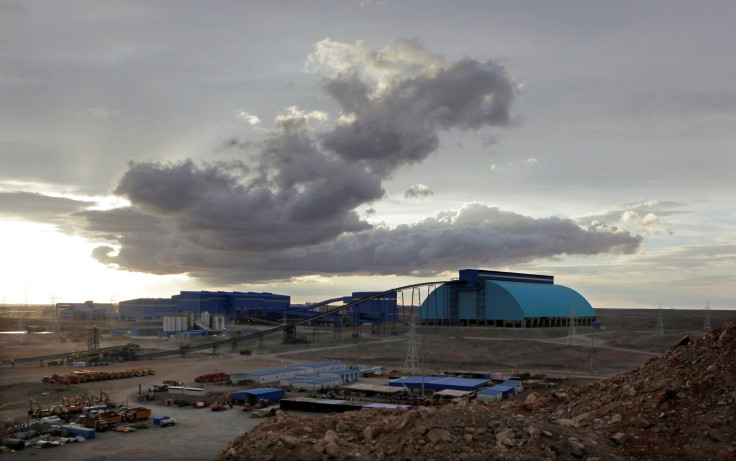Rio Tinto (RIO) Approves $5.3 Billion Expansion Of Mongolia’s Oyu Tolgoi Copper And Gold Mine

Global mining giant Rio Tinto has given its long-awaited approval for the next stage of development of the Oyu Tolgoi copper and gold mine in Mongolia. In a statement released Friday, the Anglo-Australian miner, which has been hit by the global rout in commodities, said that the development of the mine involves a $5.3 billion investment by its partners — the Mongolian government and the Canadian mining company Turquoise Hill Resources.
Oyu Tolgoi is jointly owned by the government of Mongolia, which holds a 34 percent stake, and Turquoise Hill Resources, which owns 66 percent. Rio Tinto holds a 51 percent stake in Turquoise Hill.
Production at the Oyu Tolgoi is expected to begin in 2020 and once it’s fully ramped up by 2027, the mine, located in the southern Gobi desert, is expected to produce more than 500,000 tons of copper each year, along with gold byproducts. Currently, an open-pit mine in operation at Oyu Tolgoi produces up to 200,000 tons of copper.
“Rio Tinto’s partnership with Mongolia began over a decade ago and we are proud of what we have already achieved in building a world-class and safety-focused operation which has already been selling copper for nearly three years. Today’s investment takes it to another level and will transform Oyu Tolgoi into one of the most significant copper mines globally, unlocking 80 per cent of its value,” Rio Tinto deputy chief executive Jean-Sébastien Jacques said in the statement.
Expansion plans at the Oyu Tolgoi mine — initially projected to cost $4.9 billion — have long been delayed over environmental concerns and by differences over revenue sharing between the Mongolian government and foreign investors.
It is estimated that once the mine is completed, it could account for 30 percent of Mongolia’s gross domestic product. The country, which relies heavily on mineral exports as a source of revenue, has been hit hard by the recent slowdown in China, which has led to a drop in demand of minerals. Copper prices, for instance, have dropped 25 percent over the past 12 months.
“This significant investment demonstrates the confidence of all the partners in both the Oyu Tolgoi mine and in Mongolia. It also demonstrates the attractiveness of Mongolia as a place to do business and invest, which will be a catalyst for further investments that will strengthen Mongolia's economy,” Mongolian Prime Minister Chimediin Saikhanbileg said in the statement. “The development of the underground will create further jobs, support Mongolian suppliers and unlock substantial value for all stakeholders, delivering benefits for all Mongolians for generations to come.”
On Friday, Rio Tinto’s London-listed shares were trading down 1.4 percent. However, year-to-date, the company’s stock has risen 5.6 percent, outperforming the broader index.
© Copyright IBTimes 2024. All rights reserved.





















